People
People List
-
 Elizabeth Jacobs, MD
Elizabeth Jacobs, MDRhode Island Hospital
"Development of Key Objectives and Best Practices for Training Emergency Medicine Residency Graduates Completing a Pediatric Emergency Medicine (EM2PEM) Fellows"
Elizabeth Jacobs, MD, is a professor of emergency medicine and pediatrics at The Warren Alpert Medical School of Brown University, with over two decades of experience in pediatric emergency medicine. She has served as the pediatric emergency medicine (PEM) fellowship director for the past ten years and has played a key role in shaping the education of future leaders in the field. Dr. Jacobs also has served as chair of the American Academy of Pediatrics (AAP) Section of Emergency Medicine Program Directors Steering Committee and has contributed to many national pediatric education initiatives. Her extensive background in curriculum development, leadership, and collaboration with institutions across the country has fueled her passion for creating a standardized, evidence-based curriculum for emergency medicine residency graduates completing a PEM fellowship (EM2PEM). Her project will develop a set of key objectives and competencies to standardize the specialized training needs of EM2PEM fellows, ensuring consistent, high-quality education and improving pediatric emergency care and patient outcomes.
-
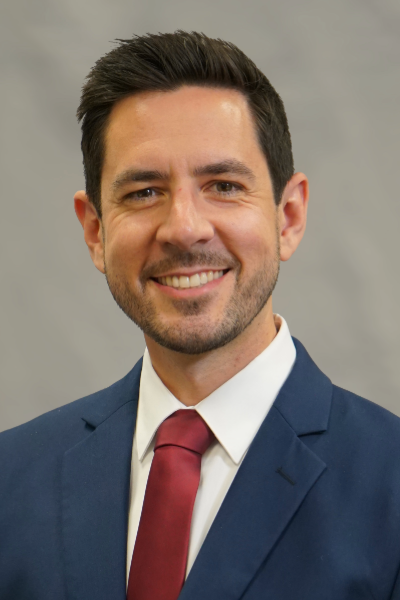 Nicholas Pokrajac, MD
Nicholas Pokrajac, MDStanford University
"Motivations and Barriers of Emergency Physicians Maintaining Procedure Skills"
Nicholas Pokrajac, MD, is a clinical associate professor of emergency medicine and pediatrics in the Department of Emergency Medicine at Stanford University. After obtaining his medical degree from the Keck School of Medicine of the University of Southern California and completed a residency in emergency medicine and fellowship in pediatric emergency medicine at the University of California San Diego. Dr. Pokrajac currently serves as the director of clinical skills training in his current position at Stanford. His interests are in faculty clinical skills maintenance and development, and the use of simulation-based mastery learning for teaching faculty.
-
 Mario Camacho, MD
Mario Camacho, MDDenver Health and Hospital Authority
"Prehospital Patients With a Preference for a Language Other Than English: A Mixed Methods Study"
Mario Camacho, MD, is an emergency medicine (EM) and emergency medical services (EMS) physician based in Denver, Colorado. He serves as an associate medical director for the Denver Health Paramedic Division and as the medical director for the Denver Health Paramedic School. Additionally, Dr. Camacho holds the position of assistant professor of emergency medicine at the University of Colorado School of Medicine.
Board-certified in both EM and EMS, Dr. Camacho is deeply committed to prehospital education, harm reduction, and health equity. His recent research focuses on addressing language barriers in prehospital care to improve patient outcomes. He has been involved in initiatives aimed at achieving equity in EMS care and patient outcomes through learning health systems.
-
 Brandon Kappy, MD, MPP
Brandon Kappy, MD, MPPChildren's National Hospital
"Classifying Pediatric Emergency Department Resource Use for Split Flow Operational Improvements"
Brandon Kappy, MD, MPP, is an assistant professor of pediatric emergency medicine and operations researcher at Children's National Hospital in Washington, D.C. He earned his medical degree from Harvard Medical School followed by a pediatrics residency at Cincinnati Children's Hospital Medical Center. Dr. Kappy then pursued a pediatric emergency medicine fellowship at Children's National Hospital. In addition to his medical training, Dr. Kappy holds a Master in Public Policy from the Harvard Kennedy School and is currently pursuing a Master of Business Administration at the George Washington School of Business.
Dr. Kappy's research integrates data analytics with clinical operations to identify and address care delays in the pediatric emergency department. His work involves developing machine learning prediction models, patient flow simulations, and conducting large database analyses to enhance patient throughput.
As the recipient of the SAEMF/ED Benchmarking Alliance Clinical Operations Research Grant, Dr. Kappy is developing innovative, machine learning-based classifications of emergency department patient resource utilization to trial a streamlined split-flow patient care process.
-
 Michael Gottlieb, MD
Michael Gottlieb, MDRush University Medical Center
"Genomic Surveillance to Identify Emerging Pathogens via Air Sampling"
Michael Gottlieb, MD, is a professor of emergency medicine at Rush University Medical Center in Chicago, Illinois. He serves as the vice chair of research and director of the Emergency Ultrasound Division.
Dr. Gottlieb earned his medical degree from Rush Medical College. He completed his residency in emergency medicine at John H. Stroger, Jr. Hospital of Cook County, followed by a fellowship in advanced emergency medicine ultrasonography at the same institution.
In his current role, Dr. Gottlieb oversees research initiatives and directs the Emergency Ultrasound Division at Rush University Medical Center. He was also the founding program director for the Rush Clinical Ultrasound Fellowship.
Dr. Gottlieb has held leadership positions, including past-chair of the American College of Emergency Physicians (ACEP) Ultrasound Section and the American Academy of Emergency Medicine (AAEM) Ultrasound Section.
Dr. Gottlieb serves as the director of learner assessment and program evaluation for SAEM’s Advanced Research Methodology Evaluation and Design in Medical Education (ARMED MedEd) program. Additionally, he has held leadership positions within SAEM, including past-chair of the SAEM Education Summit. He also serves on the editorial boards of both AEM Education and Training (AEM E&T) and Academic Emergency Medicine (AEM) where he holds the position of associate social media editor.
Dr. Gottlieb's research focuses on point-of-care ultrasound and medical education. He has authored over 600 peer-reviewed publications and has been cited more than 11,600 times. His work has significantly advanced the integration of ultrasound in emergency medicine and contributed to the development of educational frameworks for medical professionals.
-
 Brandon Maughan, MD, MHS, MSHP
Brandon Maughan, MD, MHS, MSHPOregon Health & Science University (OHSU)
"Improving Pulmonary Embolism Diagnosis With Sex-Specific D-Dimer Screening"
Brandon Maughan, MD, MHS, MSHP, is an associate professor of emergency medicine at Oregon Health & Science University (OHSU. He earned his medical degree from Case Western Reserve University School of Medicine and completed his emergency medicine residency at Brown University/Rhode Island Hospital in 2013, serving as chief resident. Following residency, Dr. Maughan was a Robert Wood Johnson Foundation Clinical Scholar at the University of Pennsylvania, where he obtained a Master of Science in Health Policy Research.
Dr. Maughan’s research focuses on sex-based differences in the emergency department evaluation of suspected pulmonary embolism. His work includes a systematic review of outpatient pulmonary embolism treatment, which was selected for the 2024 American Board of Emergency Medicine Lifelong Learning and Self-Assessment reading list. He has received a Career Development Award from the American Heart Association and was selected for the National Academy of Medicine’s Scholars in Diagnostic Excellence program. Additionally, he serves on the editorial board of Academic Emergency Medicine.
Prior to joining OHSU, Dr. Maughan worked as a community emergency medicine physician and health policy consultant, contributing to evaluations of Medicare alternative payment models established under the Affordable Care Act. His earlier research on opioid and benzodiazepine prescription practices has been cited by organizations such as the National Academy of Medicine and the Food and Drug Administration.
-
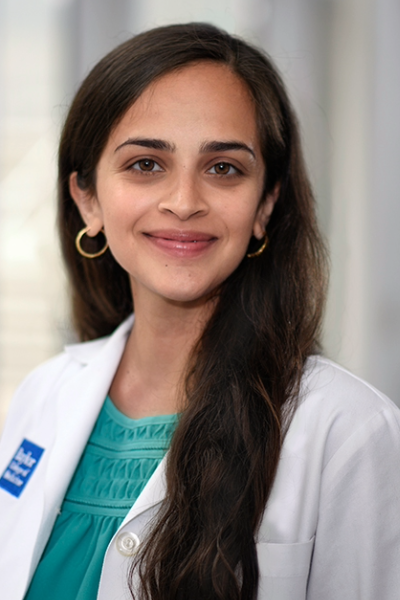 Anita Chary, MD, PhD
Anita Chary, MD, PhDBaylor College of Medicine
"An Intervention to Engage Older Adults in Emergency Department Admission Decisions"
Anita Chary, MD, PhD, is an emergency physician and health services researcher at Baylor College of Medicine. She earned a medical degree from Washington University School of Medicine and served as chief resident at the Harvard Affiliated Emergency Medicine Residency. Dr. Chary is a PhD-trained anthropologist and qualitative methods expert whose research focuses on health disparities, equity, and health care delivery for vulnerable populations. Dr. Chary is an active research mentor and serves as the associate program director of the Medical Scientist Training Program at Baylor College of Medicine. Her domestic emergency department-based research aims to improve health care delivery for older adults, specifically those who are socioeconomically marginalized and those with cognitive impairment. Her international work in health care program development and implementation of evidence-based interventions spans child nutrition, reproductive health, chronic disease management, and specialty care referral and navigation in rural areas.
-
 Katrina Muraglia, MD, PhD
Katrina Muraglia, MD, PhDRegents of the University of Michigan
"Mechanism of Thermal Injury After a Heat-Based Therapy for Central Line Infection"
Katrina Muraglia, MD, PhD, is completing her emergency medicine residency at the University of Michigan and will transition to a research fellowship and clinical instructor role in fall 2025. She earned her Bachelor of Science in English and Biology from the University of Michigan, followed by both her MD and PhD in Biochemistry from the University of Illinois at Urbana-Champaign.
Dr. Muraglia's research focuses on developing adjuvant therapies for central line infections and understanding the cellular mechanisms of endothelial response to physical manipulation and iatrogenic injury. Her upcoming fellowship in Dr. J. Scott VanEpps' laboratory will be supported by the SAEMF Research Training Grant.
-
 Lisa-Qiao MacDonald, MD
Lisa-Qiao MacDonald, MDResident, Emergency Medicine
Mount Sinai Hospital
Lisa-Qiao MacDonald, MD, is a fourth-year emergency medicine (EM) resident at Mount Sinai in New York City. She grew up in western Massachusetts, attended Oberlin College, and earned her MD from Sidney Kimmel Medical College at Thomas Jefferson University. Prior to medical school, she worked at the Center for Medicare and Medicaid Innovation. Her research interests are grounded in using policy and payment innovation to improve comprehensive care delivery systems for high utilizers. She is an incoming scholar to the National Clinician Scholars Program at Yale.
-
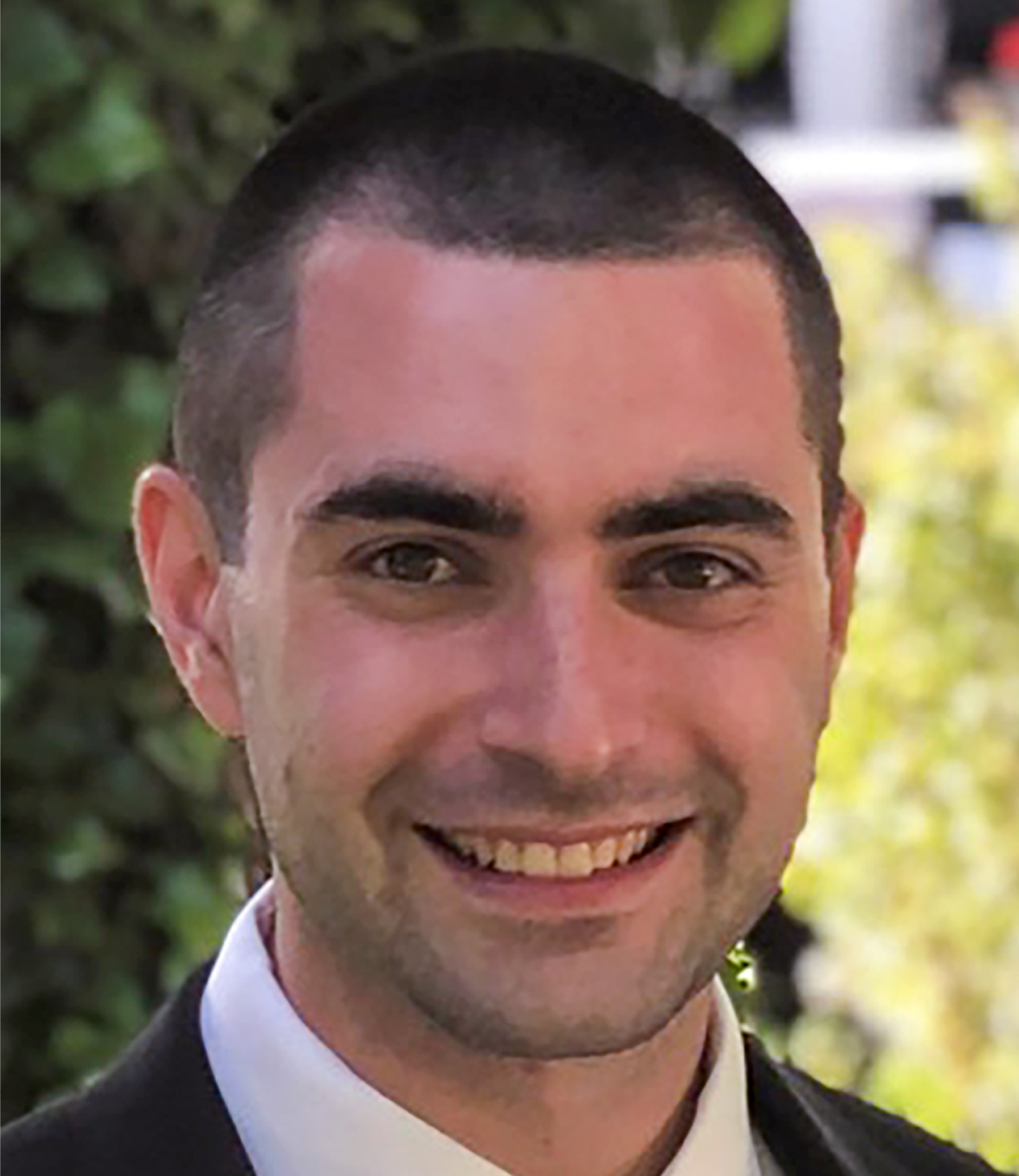 Gregory Peters, MD
Gregory Peters, MDInaugural Fellow in Emergency Medical Services Research, Health Policy, and Translation
Mass General Brigham
Gregory Peters, MD, earned his MD at Harvard Medical School and subsequently completed residency at the Harvard Affiliated Emergency Medicine Residency program at Mass General Brigham in Boston, MA. He is now the inaugural fellow in emergency medical services research, health policy, and translation at Mass General Brigham while earning his MPH at the Harvard T.H. Chan School of Public Health.
Dr. Peters has drawn on his prior background as a firefighter and emergency medical technician in the Bronx, NY, to find inspiration for multiple lines of research in the prehospital phase of emergency care, with a focus on respiratory emergencies such as asthma exacerbations.
-
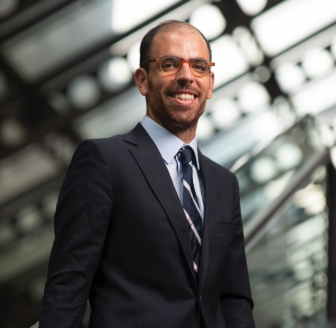 Hashem Zikry, MD, MS
Hashem Zikry, MD, MSEmergency Medicine Physician
UCLA
Hashem Zikry, MD, MS, is an emergency medicine (EM) physician and a scholar in the National Clinician Scholars Program at UCLA. Prior to fellowship, he was Chief Resident at Mount Sinai hospital in New York City. His work has been published in various academic and lay outlets, including JAMA, Health Affairs, Annals of Emergency Medicine, and The Washington Post. His research interests revolve around incorporating acute unscheduled care into health systems' population health and value-based care strategies, with a particular focus on novel and innovative disposition options such as virtual observation and hospital-at-home.
-
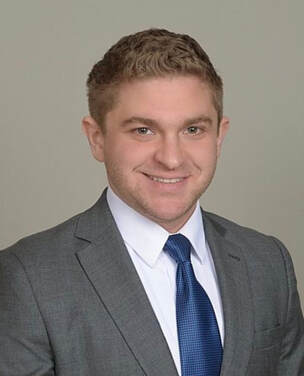 Joshua Feblowitz, MD, MS
Joshua Feblowitz, MD, MSAssociate Medical Director
Frederick Health Hospital
Joshua Feblowitz, MD, MS, is the Associate Medical Director and Vice Chair of Emergency Medicine with Sound Physicians at Frederick Health Hospital in Frederick, Maryland. He completed his residency training at Brigham & Women's Hospital and Massachusetts General Hospital in Boston (BWH/MGH Harvard-Affiliated Emergency Medicine Residency (HAEMR) Program). He is also Director of Content for the virtual simulation platform Full Code Medical. His writing has been published in the NYU Physician, Living Without, and multiple Children’s Hospital Boston publications (Dream, Vector, Pediatric Views, Thriving). His research in healthcare IT and clinical decision support has appeared in the New England Journal of Medicine, Journal of the American Medical Informatics Association, Applied Clinical Informatics, Annals of Emergency Medicine and others. He graduated from Harvard in 2009 with a degree in American History & Literature and completed MIT’s Graduate Program in Science Writing in 2010. He received his MD from Harvard Medical School in 2015. He grew up in Winchester, MA and now lives in Frederick, MD with his wife, Kasia, daughter, Maia, and rescue dog, Lucy.
-
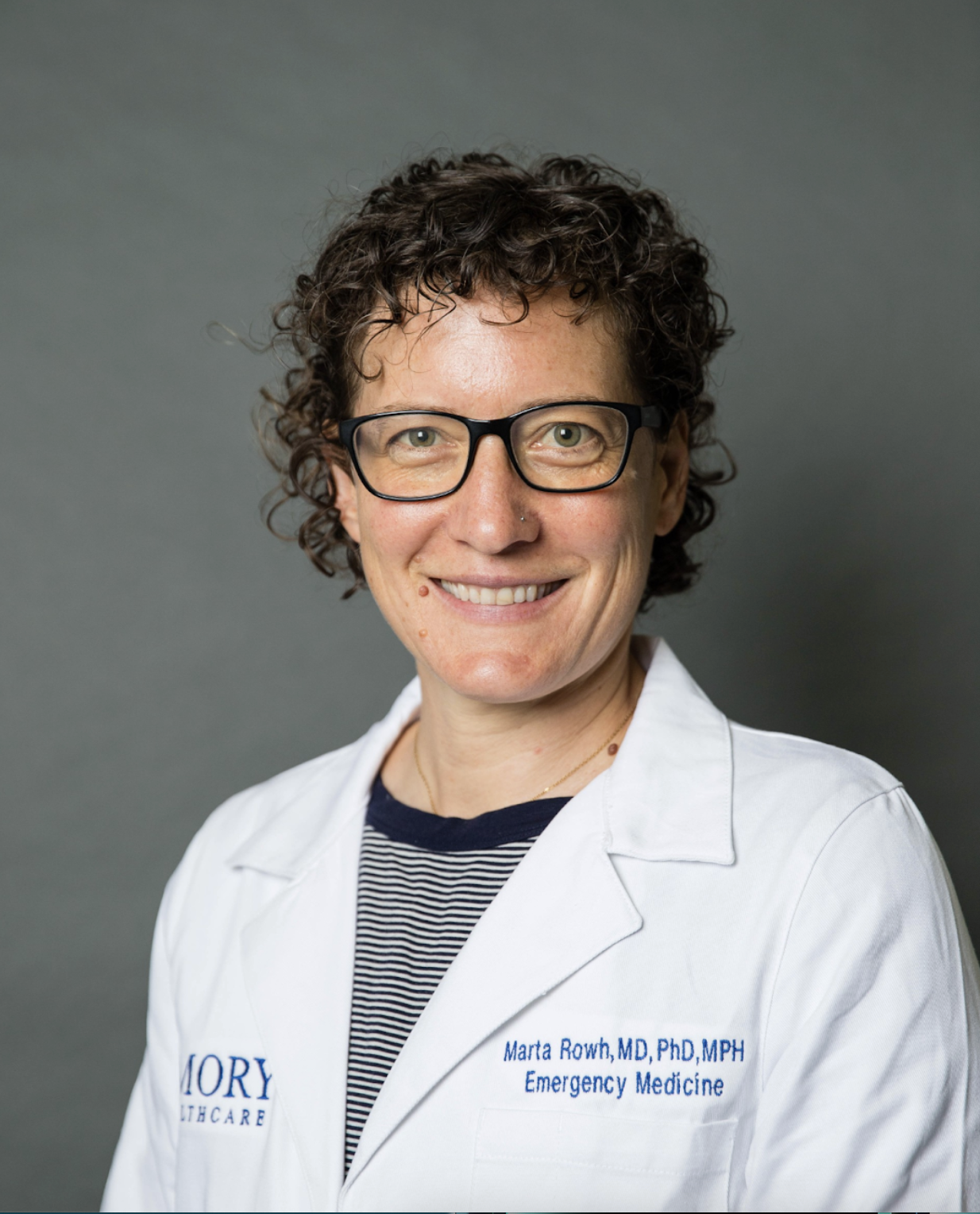 Marta Rowh, MD, PhD, MPH
Marta Rowh, MD, PhD, MPHAssistant Professor, Emergency Medicine
Emory University
Marta Rowh, MD, PhD, MPH, is an assistant professor of emergency medicine (EM) at Emory University and a leading researcher on artificial intelligence (AI) applications in medical education and clinical practice. Her work focuses on leveraging AI to improve physician efficiency, optimize healthcare documentation, and address biases in medical curricula. Her research utilizes Natural Language Processing (NLP) algorithms to analyze how medical education materials represent disease demographics and incorporate diverse patient populations in case-based learning. As the 2025 recipient of the SAEM Education grant, she is leading an initiative to apply AI-driven analysis to large volumes of curricular content, identifying demographic underrepresentation that may reinforce health inequities. This research seeks to ensure that disparities seen in clinical care, such as the underdiagnosis of cardiovascular disease in women, are not perpetuated in medical education. It also provides educators with scalable tools to systematically assess and revise curricula to promote more equitable medical training.
Dr. Rowh is part of a multi-institutional study on Abridge AI-assisted note writing in emergency medicine, assessing its impact on physician efficiency, patient throughput, billing, and workflow optimization. Dr. Rowh has also published on understanding the ethical implications and pitfalls of using these adjuncts to clinical care. A national speaker on AI in medicine, Dr. Rowh presents on AI in clinical documentation, billing, and health equity. Through research, advocacy, and curriculum development, she is shaping the future of AI-driven innovations in academic medicine.
-
 Rita Cydulka, MD, MS
Rita Cydulka, MD, MSRita Cydulka, MD, MS, retired from the full-time practice of emergency medicine (EM) at Metrohealth Medical Center in 2014. At the time of her retirement, she was a tenured professor and vice chair of the Department of EM and an associate professor in the Department of Epidemiology and Biostatistics at Case Western Reserve University Medical School in Cleveland. She served on the SAEM Board of Directors from 1997-2000, the ABEM Board of Directors from 2002-2010, and as President of the ABEM Board from 2007-2008. In 2008, Dr. Cydulka was honored with the SAEM Advancement of Women in Academic EM Award.
She is the author or co-author of numerous articles, abstracts, and book chapters, as well as an editor of Tintinalli's EM: A Study Guide, 7th Edition. In her retirement, she enjoys time with her family, travels, hikes, reads, works a few shifts in the ED, and serves as a ship director on Lindbald-National Geographic Ships, which are small expedition ships that travel all around the world.
-
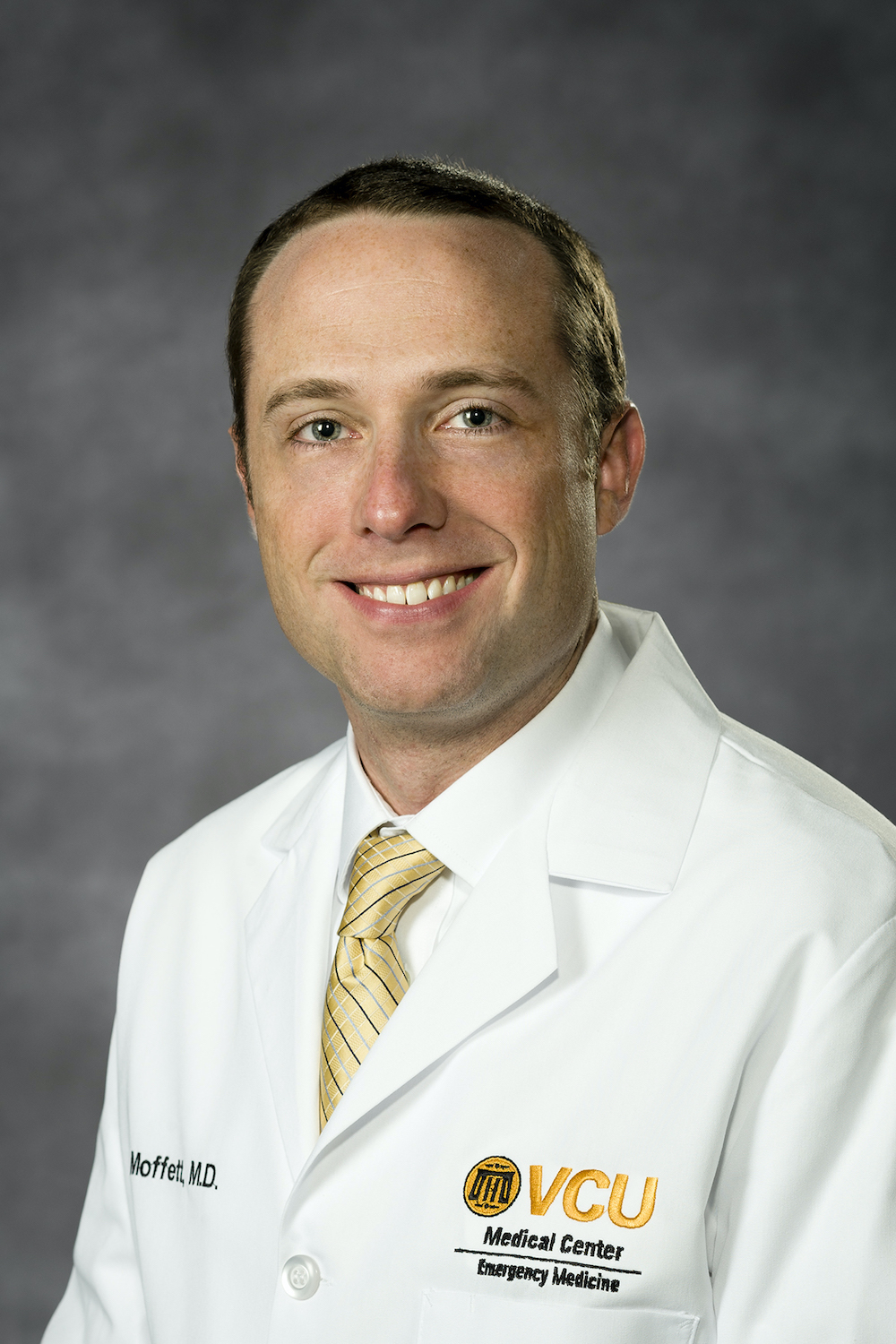 Peter Moffett, MD
Peter Moffett, MDProgram Director
Virginia Commonwealth University
Peter Moffett, MD, attended the University of Delaware for undergraduate studies before attending Jefferson Medical College for his medical degree. He participated in the Health Professions Scholarship Program, leading to a commission in the United States Army, and completed his residency in emergency medicine (EM) at Madigan Army Medical Center, Fort Lewis, Washington. After graduating from residency, Dr. Moffett was deplyed to Iraq in support of Operation Iraqi Freedom and Operation New Dawn, where he earned a Meritorious Service Medal. Upon his return, he was stationed at Fort Hood Texas, where he served as the Director of Research for the Department of EM. After serving for seven years in the US Medical Corps, Dr. Moffett honorably separated at the rank of Major and came to Virginia Commonwealth University to start his civilian medical career. He currently serves as the Program Director and is appointed as an associate professor of EM. He serves as a senior reviewer for Annals of Emergency Medicine and has published numerous articles in a variety of EM topics. His interests include evidence-based medicine, teaching research skills and fundamentals, as well as any well-designed project that lets him use his biostatistic program for dummies.
-
Kirsten Morrissey, MD
Associate Professor, Pediatric Emergency Medicine
Albany Medical College
Kirsten Morrissey, MD, focuses in the area of pediatric emergency medicine (EM) at the Massry Family Children's Emergency Center. She completed her medical education at Thomas Jefferson University Hospital in Philadelphia. Dr. Morrissey is the Medical Director for the Sexual Assault Forensic Examiner Program, which provides support, examination, and treatment to patients in suspected cases of abuse and assault. At Albany Medical College, she is an Associate Professor of Pediatric EM and the Clerkship Director of Pediatric EM.
-
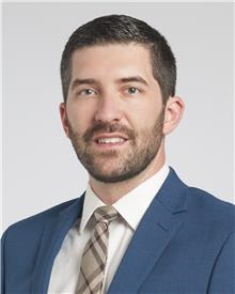 Bryan Baskin, DO
Bryan Baskin, DOVice Chair of Safety, Quality, and Patient Experience
Cleveland Clinic Department of Emergency Medicine
Bryan Baskin, DO, is the Vice Chair for Safety, Quality, and Patient Experience (SQPE) and Co-Director of Operations of the Cleveland Clinic’s Department of Emergency Medicine. In this role, he oversees quality, patient safety, patient experience, and operations across all Emergency Departments within the Cleveland Clinic Health System. He is also a member of the Cleveland Clinic Corporate Compliance Committee as well as the Cleveland Clinic Risk Management Group. Dr. Baskin has a strong interest in patient safety, quality improvement, operational management, patient outcomes, compliance, medical finance, peer review, and quality assurance. In addition to his leadership roles, Dr. Baskin serves as faculty at Case Western Reserve University’s School of Medicine, focusing on teaching quality, patient safety, and process improvement. He is also faculty for the Cleveland Clinic Foundation’s “To Act As A Unit” Course. Before joining The Cleveland Clinic in 2018, he served as the Associate Operations Director for Emergency Medicine at The Metro Health Medical System in Cleveland Ohio. Dr. Baskin has authored multiple chapters in Emergency Medicine textbooks and papers on risk management, quality, safety, and process improvement. He is a regular contributor to EM Legal Letter. Clinically, Dr. Baskin sees patients in both the General and Pediatric Cleveland Clinic Emergency Departments. He holds the academic rank of Assistant Professor of Emergency Medicine at the Cleveland Clinic Lerner College of Medicine and Case Western Reserve University. He is an active member and fellow of the American College of Emergency Physicians (ACEP).
-
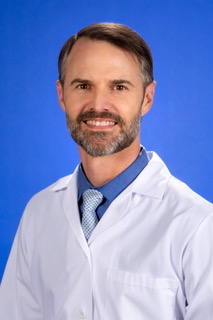 David Barnes, MD
David Barnes, MDHealth Sciences Clinical Professor, Emergency Medicine
UC Davis School of Medicine
David Barnes, MD, is a Health Sciences Clinical Professor of Emergency Medicine at UC Davis School of Medicine and UC Davis Health in Sacramento, CA. He was the Emergency Medicine residency Program Director for 12 years, and now serves as Director of Faculty Development, Alumni Relations, and Sustainability for the Department of Emergency Medicine. He is a member of the Department’s clinical operations team, serves as a Physician Advisor for UC Davis Medical Center, and is a consulting editor for the Agency for Healthcare Research and Quality’s Patient Safety Network.
-
Andrew King, MD
Associate Professor, Emergency Medicine
Wayne State University School of Medicine
Andrew King, MD, is an Associate Professor at Wayne State University School of Medicine and the Medical Director of the Michigan Poison and Drug Information Center, the Fellowship Director of the Detroit Medical Center/WSU Medical Toxicology Fellowship and the Medical Director of the Tolan Park Research Center Opioid Treatment Program and lead of the inpatient Addiction Medicine Service at the Detroit Medical Center.
-
 Charles B. Cairns, MD
Charles B. Cairns, MDWalter H. and Leonore Annenberg Dean; Senior Vice President, Medical Affairs
Drexel University
Charles B. Cairns, MD, is the Walter H. and Leonore Annenberg dean of the College of Medicine and senior vice president for medical affairs at Drexel University. A leader in emergency medicine and critical care education, training, and research, he previously served as dean of the College of Medicine and Health Sciences at the United Arab Emirates University and dean of the College of Medicine and assistant vice president for clinical research at the University of Arizona. He has also been chair of the Department of Emergency Medicine at the University of North Carolina, associate chief of emergency medicine at Duke University, and director of emergency medicine research at the Duke Clinical Research Institute, the world’s largest academic research organization.
Dr. Cairns has served as director of the National Institutes of Health United States Critical Illness and Injury Trials Group and as principal investigator of the Department of Homeland Security National Collaborative for Biopreparedness. He has led COVID-19 research and innovation efforts to understand the acute and longitudinal immune response to severe SARS-CoV-2 infection, including as clinical lead for the National Institute of Allergy and Infectious Diseases COVID-19 Immunophenotyping (IMPACC) study, a member of the Data and Safety Monitoring Board for the National Heart, Lung, and Blood Institute convalescent plasma study, and principal investigator of the Bill & Melinda Gates Foundation project on predicting COVID-19 community infection and recovery.
An honors graduate of Dartmouth College, Dr. Cairns earned his medical degree from the University of North Carolina and completed his residency in emergency medicine and fellowship in cardiovascular research at the Harbor-UCLA Medical Center.
People List - Grid
-
 Elizabeth Jacobs, MD
Elizabeth Jacobs, MDRhode Island Hospital
"Development of Key Objectives and Best Practices for Training Emergency Medicine Residency Graduates Completing a Pediatric Emergency Medicine (EM2PEM) Fellows"
-
 Nicholas Pokrajac, MD
Nicholas Pokrajac, MDStanford University
"Motivations and Barriers of Emergency Physicians Maintaining Procedure Skills"
-
 Mario Camacho, MD
Mario Camacho, MDDenver Health and Hospital Authority
"Prehospital Patients With a Preference for a Language Other Than English: A Mixed Methods Study"
-
 Brandon Kappy, MD, MPP
Brandon Kappy, MD, MPPChildren's National Hospital
"Classifying Pediatric Emergency Department Resource Use for Split Flow Operational Improvements"
-
 Michael Gottlieb, MD
Michael Gottlieb, MDRush University Medical Center
"Genomic Surveillance to Identify Emerging Pathogens via Air Sampling"
-
 Brandon Maughan, MD, MHS, MSHP
Brandon Maughan, MD, MHS, MSHPOregon Health & Science University (OHSU)
"Improving Pulmonary Embolism Diagnosis With Sex-Specific D-Dimer Screening"
-
 Anita Chary, MD, PhD
Anita Chary, MD, PhDBaylor College of Medicine
"An Intervention to Engage Older Adults in Emergency Department Admission Decisions"
-
 Katrina Muraglia, MD, PhD
Katrina Muraglia, MD, PhDRegents of the University of Michigan
"Mechanism of Thermal Injury After a Heat-Based Therapy for Central Line Infection"
-

-
 Gregory Peters, MD
Gregory Peters, MDInaugural Fellow in Emergency Medical Services Research, Health Policy, and Translation
Mass General Brigham
-

-

-

-

-

-
 Bryan Baskin, DO
Bryan Baskin, DOVice Chair of Safety, Quality, and Patient Experience
Cleveland Clinic Department of Emergency Medicine
-

-
 Charles B. Cairns, MD
Charles B. Cairns, MDWalter H. and Leonore Annenberg Dean; Senior Vice President, Medical Affairs
Drexel University
